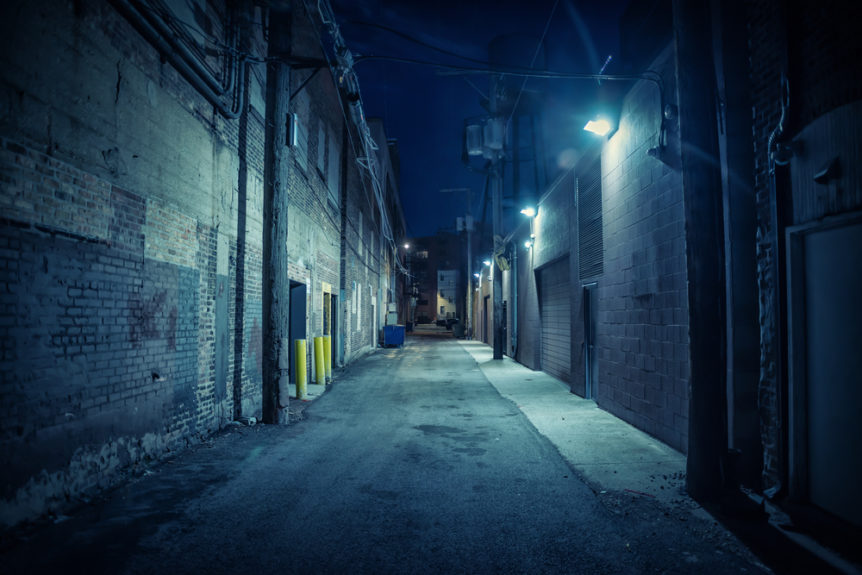
For public safety’s sake, hold people accountable on crime: Abandon ‘comfortable inaction,’ not the tools of criminal justice
By Donna More
August 19, 2022
The veil of tears that rightfully followed the bloodshed and death in the Highland Park 4th of July shooting was greeted by the predictable hail of words from politicians vowing to do something about the guns and violence. Pritzker and Lightfoot. Biden and Harris. Durbin and Duckworth. All raced to the media sirens echoing the Governor’s tough-on-crime reaction: “I will stand firm with Illinoisans and Americans: we must – and we will – end this plague of gun violence.”
Just as predictably, the huffing and puffing made no mention of that weekend’s bloodshed in Chicago where 71 people were shot and a dozen were killed. Chicago’s weekly mass shootings have become so routine that citizens and pols alike have fallen into a state of what John Kennedy once called “comfortable inaction.”
The fact is, now that the media has moved on from Highland Park, we’re back in a Kennedy state of mind. The status quo seems unshakeable. Crime is at epidemic proportions, agenda driven sound bites pollute the media airwaves, and behind the bluster the criminal justice tools needed to stanch the problem are being systematically abandoned.
In blue states like Illinois where progressives own the narrative, political leaders largely ignore the real concerns of their constituents. A majority of voters feel unsafe and hold violent crime among their greatest concerns. Seventy percent (70%) have a somewhat positive view of law enforcement and want more police in their neighborhoods
But instead of taking steps to halt the surge in crime, politicians seem intent on accelerating it with voluminous legislation – “we will find out what’s in it when we pass it” – and heaps of self- congratulatory rhetoric.
Case in point, last January Gov. Pritzker signed the 764 page SAFE-T Act, touting it as “a substantial step toward dismantling the systemic racism that plagues our communities, our state and our nation and brings us closer to true safety, true fairness and true justice.”
In reality, though, the Act has made things safer for criminals, not law-abiding citizens.
Set to take effect in 2023, SAFE-T resets the underlying premise for criminal justice as the repair for systemic racism while crime prevention and prosecution take a back seat. It decriminalizes offenses, dispenses with cash bail, and codifies a belief that incarceration is more expensive than the price we pay in carjackings, assaults, retail theft, gun violence and murder.
And, as if that is not enough for one bill, it makes apprehension and arrest more difficult for police. The counterpoint to Pritzker’s aspiration for “true safety” is a set of statistics that show Illinois citizens have rarely felt so UNsafe.
A recent survey by SafeWise shows that daily concern about crime has risen 36% in Illinois in 2022, with violent crime being the biggest worry. Two out of three Illinoisans claim they have daily high concern for their personal safety. Only 42% feel safe in their state, compared to 55% nationally.
In a democracy, political leaders ought to heed such realities. High sounding pledges like “We must end this plague” suggest things will be done, that meaningful action will be taken. In Illinois, though, people are expected to believe what the political class through their media say, not what they do. No wonder that four of five voters believe government acts without the consent of the governed.
Hope for a return to law and order springs from recent events in some of the most liberal cities in the country. In San Francisco and Baltimore, chief prosecutors have been thrown out on their ears. Voters are fed up with progressive reforms that are too lenient and make the public less safe.
Likewise, in Chicago (and Illinois), it’s time to stop talking and start doing.
The criminal justice system needs to reinstate accountability as part of its mission. That does not mean putting offenders in prison and throwing away the key. It means being tough, fair and compassionate so victims and perpetrators get the proper measure of justice.
It’s time to put teeth back into pre-trial detention and strike the SAFE-T Act provision that eliminates cash bail. Illinois already puts violent offenders back on the street at alarming rates.
Without cash bail, the situation will get worse. Restrictions on police need to be modified. Putting cuffs on law enforcement is a senseless and utterly obtuse response to rising crime … and the public knows it. It is as if deterring crime is best achieved by deterring (re: defunding) police. The notion flies in the face of countless polls that show that parents of all colors crave greater police presence and protection.
Social justice vigilantes like Kim Foxx should resign and take their agenda to a different arena. Prosecutors should prosecute. Done with fairness and compassion, prosecuting based on facts in evidence is one way to ensure social equity. Of course, that idea is completely disregarded by the catch-and-release crowd inspired and funded by George Soros.
There is plenty of evidence to show how law and order deteriorates in a state of comfortable inaction. Sadly – even dangerously – voters signal their consent by re-electing officials whose self-interests are served by staying the course no matter the outcomes.
In order to take a “substantial step … closer to true safety,” voters have to change, too. They must reject the status quo and the platitudes that go with it. They need to emphatically withdraw their consent to high sounding, empty reforms and insist on actions that result in more accountability, less crime, and greater public safety.
Bottom line? Incumbents beware.
-30-
 Donna More was candidate for Cook County State’s Attorney in 2020 and is well-known as a former state and federal prosecutor now in private practice in Chicago.
Donna More was candidate for Cook County State’s Attorney in 2020 and is well-known as a former state and federal prosecutor now in private practice in Chicago.

